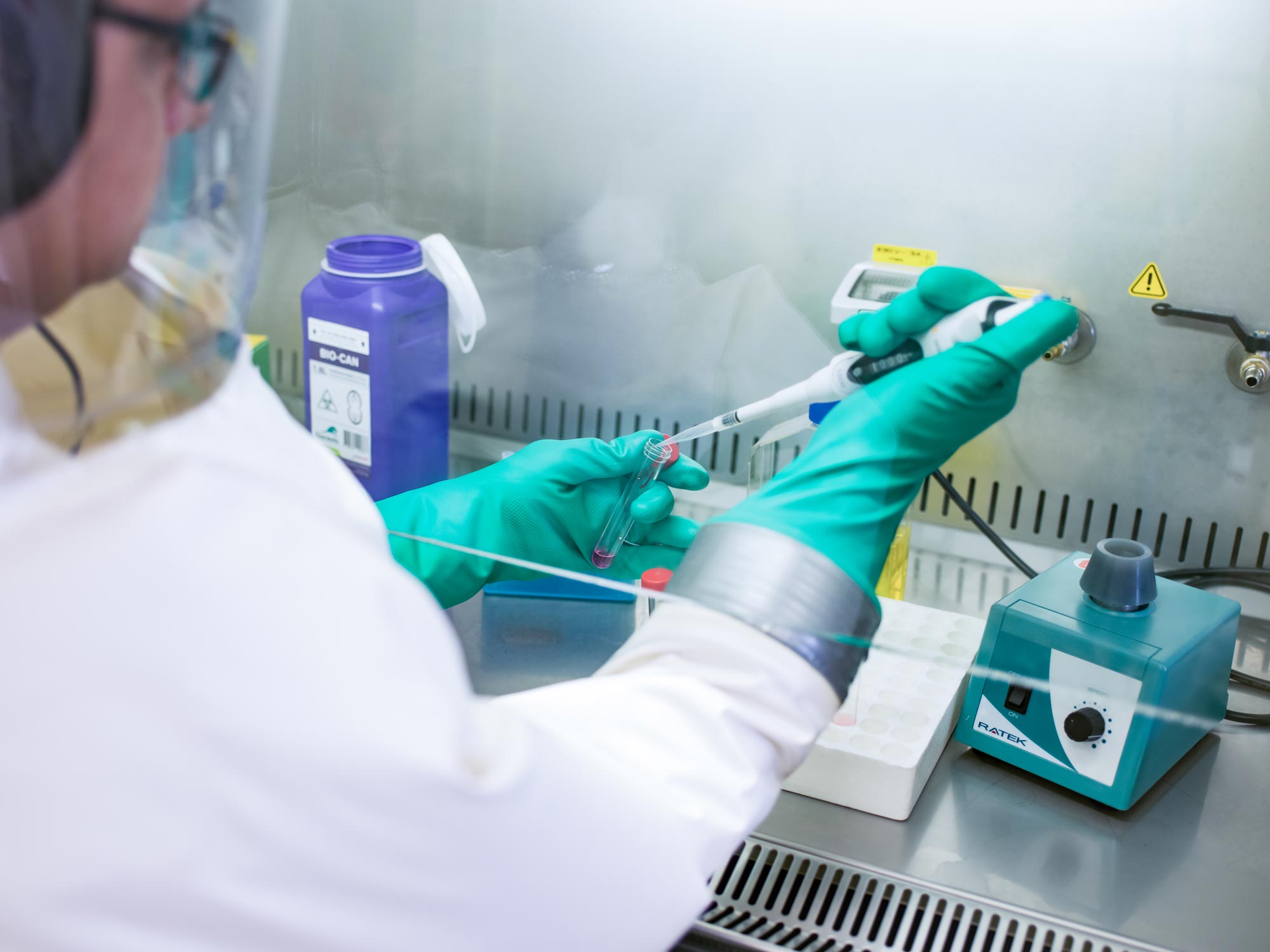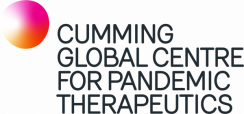The University of Melbourne has received a significant philanthropic donation in support of The Peter Doherty Institute for Infection and Immunity (Doherty Institute), a joint venture of the University of Melbourne and Royal Melbourne Hospital, to establish the Cumming Global Centre for Pandemic Therapeutics (CGCPT).
This mission-driven, globally connected research program will enable rapid design and development of treatments for pathogens of pandemic potential. The centre will advance the science behind antiviral therapeutics, transforming the management of future pandemics and saving lives.
Located within the Doherty Institute in Melbourne, Australia, the Cumming Global Centre for Pandemic Therapeutics (CGCPT) is named after the inaugural major donor – Mr Geoff Cumming.
What the CGCPT will do
The CGCPT will develop new technologies to treat future pathogens of pandemic potential.
The Centre has an ambitious 20-year research program with the mission to develop novel platform technologies using a ‘plug and play’ approach. This means that treatment solutions can be rapidly adapted to a new pathogen within much shorter timeframes than currently possible after a new virus is identified.
Effective and timely therapeutics have the potential to transform how the next pandemic is managed, but innovation in antiviral therapeutics has traditionally lagged in comparison to vaccines. During the first 12 months of the COVID-19 pandemic, AUD$137 billion was publicly invested globally in vaccines compared to just AUD$7 billion in therapeutics.
The centre will take advantage of new technologies that can directly target the genetic code of pathogens using gene editing and gene silencing, enhancing the innate immune response to target whole families of viruses, not only individual viruses, and will develop better biologics such as antibodies which have broad activity and are cheaper and easy to administer. This is different from current approaches to antiviral drug development, which are more commonly based on small molecules that inhibit specific steps in a virus’s life cycle.
The centre will pursue a mission-driven model, removing the barriers to long-term innovation and taking a risk-neutral approach that allows the pursuit of high-risk, high-reward projects. It will reserve 20 per cent of its funding for blue sky research and bring together scientists from diverse disciplines.

Importance and benefits of therapeutics in a pandemic response
In addition to public health measures, an effective pandemic response requires both vaccines and therapeutics.
Experience from the HIV and COVID-19 pandemics shows that therapeutics are critically important in the response to a major global pandemic. New treatment platforms offer the potential to protect the world from future pandemics. Without them, the next pandemic could be an even greater threat to people and society.
The need to fast-track treatments
While the current approach to developing therapeutics has delivered life-saving treatments for viruses such as HIV and more recently, delivered treatments for COVID-19, the technology was developed in the mid 1990s and is slow. It can typically take 2-5 years before they are ready for Phase 1 trials.
In the response to COVID-19, it took two years to develop the world’s first COVID-19 oral drug treatments, Paxlovid and Molnupiravir – these were approved in late 2021. These treatments remain expensive and are only available in high income countries.
By comparison, the first COVID-19 vaccine was approved in July 2020. If Paxlovid and Molnupiravir, or a similar therapeutic drug, had been available at scale in July 2020, in line with COVID-19 vaccine approval, it could have prevented millions of deaths globally.
While we will always need vaccines to effectively manage viruses, treatments also play a critically important role for those people who become infected.


